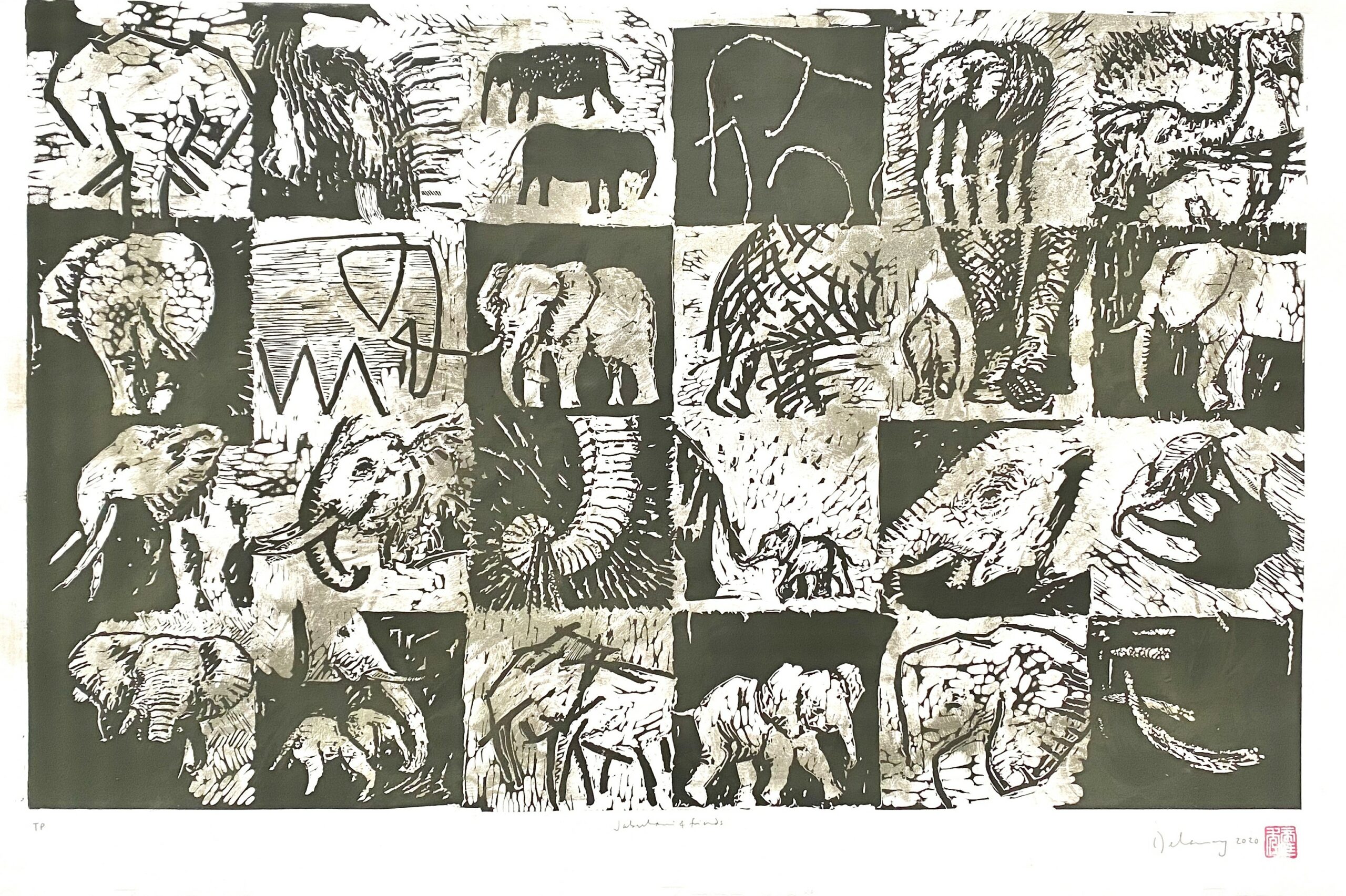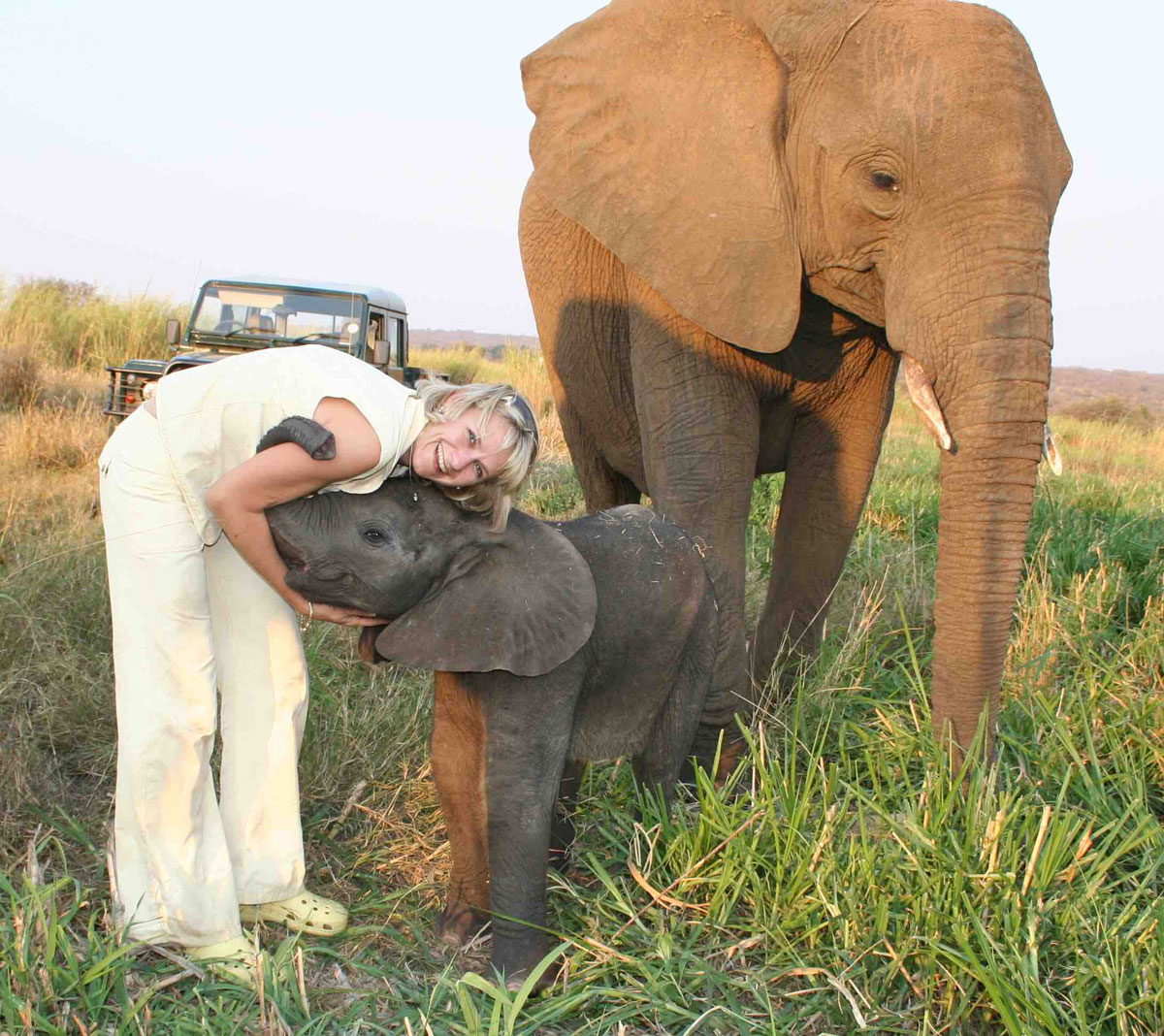HERD’s mission is closely aligned with the United Nations’ Sustainable Development Goals (SDGs) which were adopted in 2015. We acknowledge that development must balance social, economic, and environmental sustainability. To work towards a more eco-friendly way of life, we have initiated several sustainability projects at HERD including the elephant dung compost project and the Bokashi project.
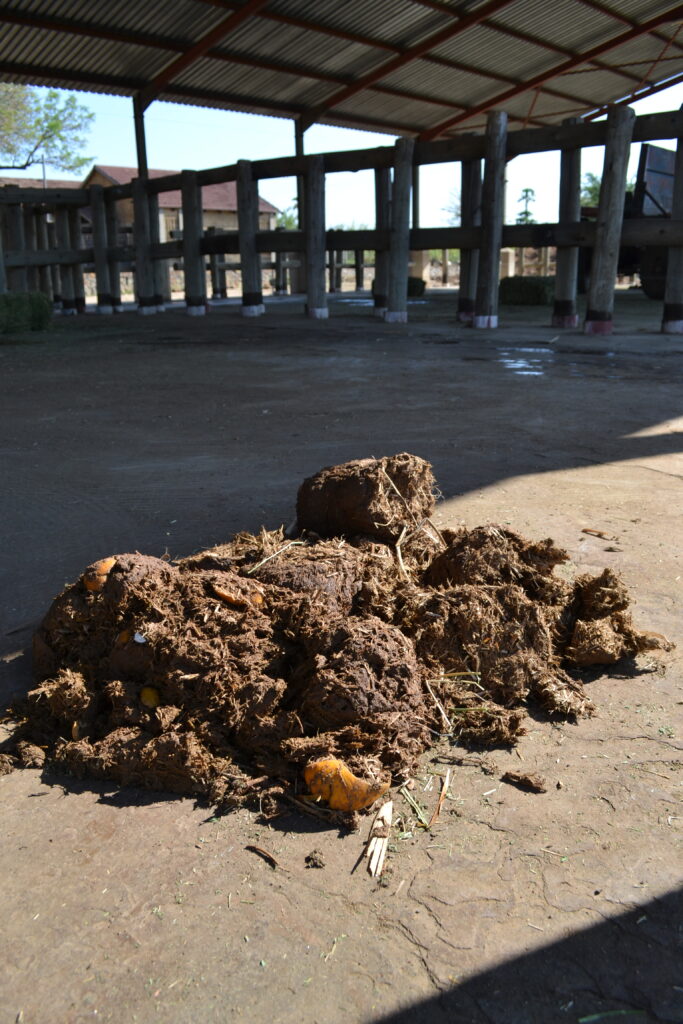
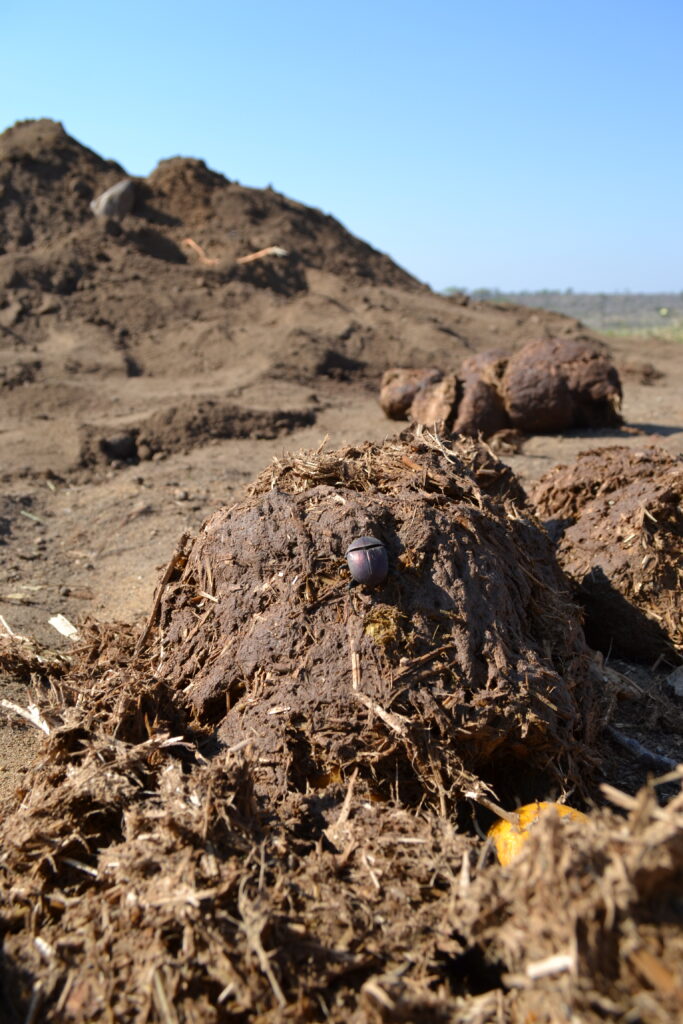
Adult elephants have a huge appetite, consuming roughly 150 kilograms (330 pounds) of food every day, most of which goes undigested. This results in them producing up to 100 kilograms (220 pounds) of dung per day. The Jabulani herd spend their evenings at the homestead, where there is a decent amount of elephant dung accumulated by morning.
Instead of throwing the dung away as trash or into a landfill, we have had to think of ways to repurpose the dung. The JabuLadies project transforms dried elephant dung into homemade paper and soap, while JabuGin is infused with elephant dung. However, there is still plenty of dung left over, which is used to make organic compost.
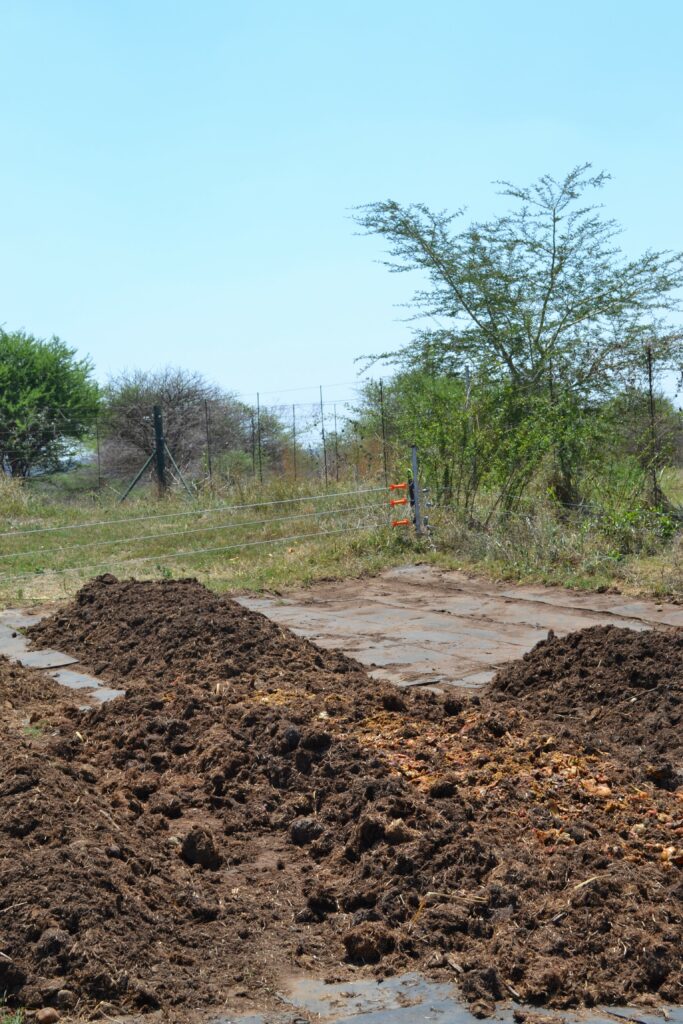
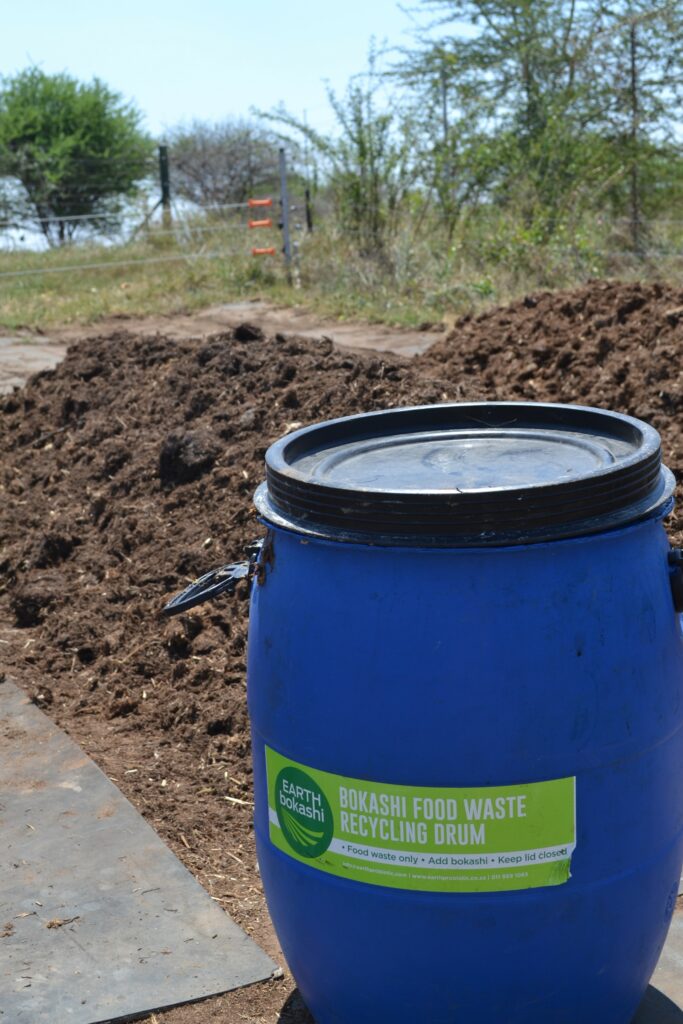
Bokashi is a composting initiative that aims to turn organic waste into nutrient-rich soil. Leftover food and scraps from the lodge and carers are added to the blue drums along with a microbe mix which ferments the food. Any food scraps can be added into the mix, from fruit peels to bones.
By combining the elephant dung with Bokashi, we are able to create fresh compost that can be used to fertilize soil in the area. This process not only repurposes the elephant dung, but also reduces the amount of waste that ends up in landfills. In addition to benefiting the environment, the compost produced by the Elephant Dung Compost Project helps to improve soil quality and create new resources for consumption. It’s a win-win situation for everyone involved – the elephants, local community and the environment around them.
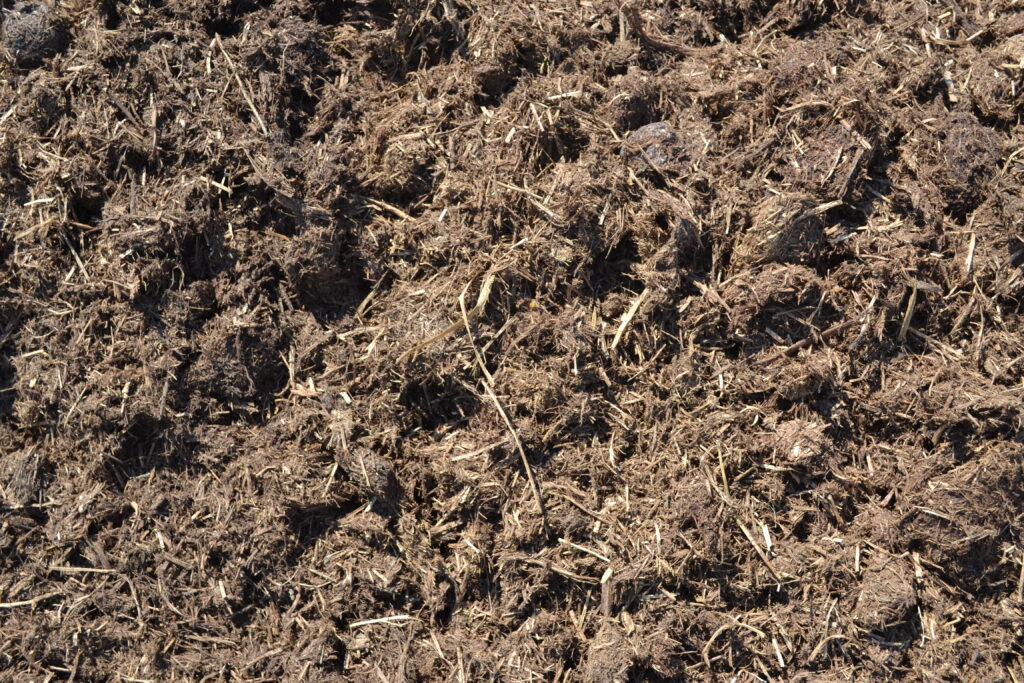
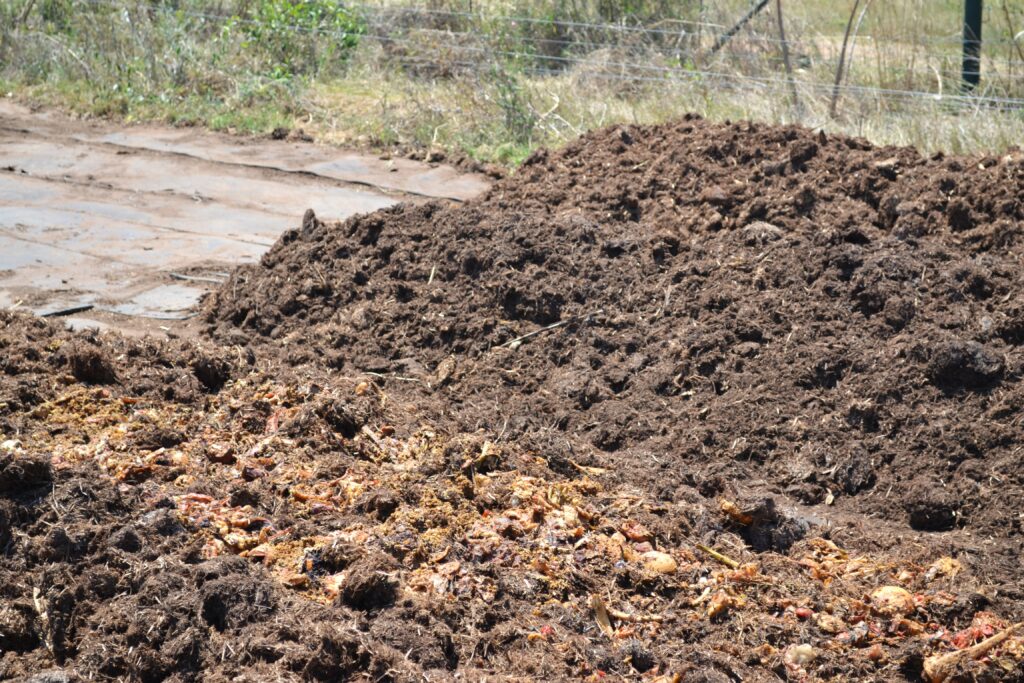
The organic compost is used across the reserve and at our homestead. We use it to fertilise the soil in the bana grass plantation and the vegetable gardens where fresh ingredients are grown for the carers. Additionally, the compost is used in the reserve for land restoration where erosion had occurred and for planting of new trees.
These initiatives contribute to raising awareness about the importance of wildlife conservation and responsible waste management. As the community continues to explore innovative ways to repurpose elephant dung, it fosters a harmonious relationship between humans and wildlife, demonstrating that even waste can be transformed into valuable resources for the benefit of both local communities and the environment.
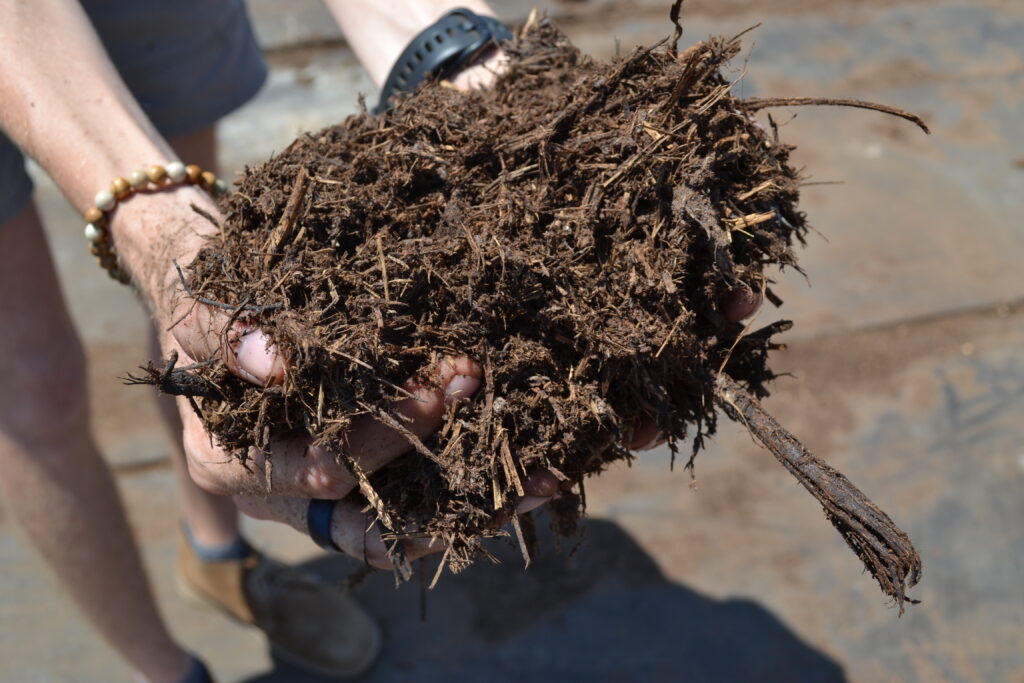
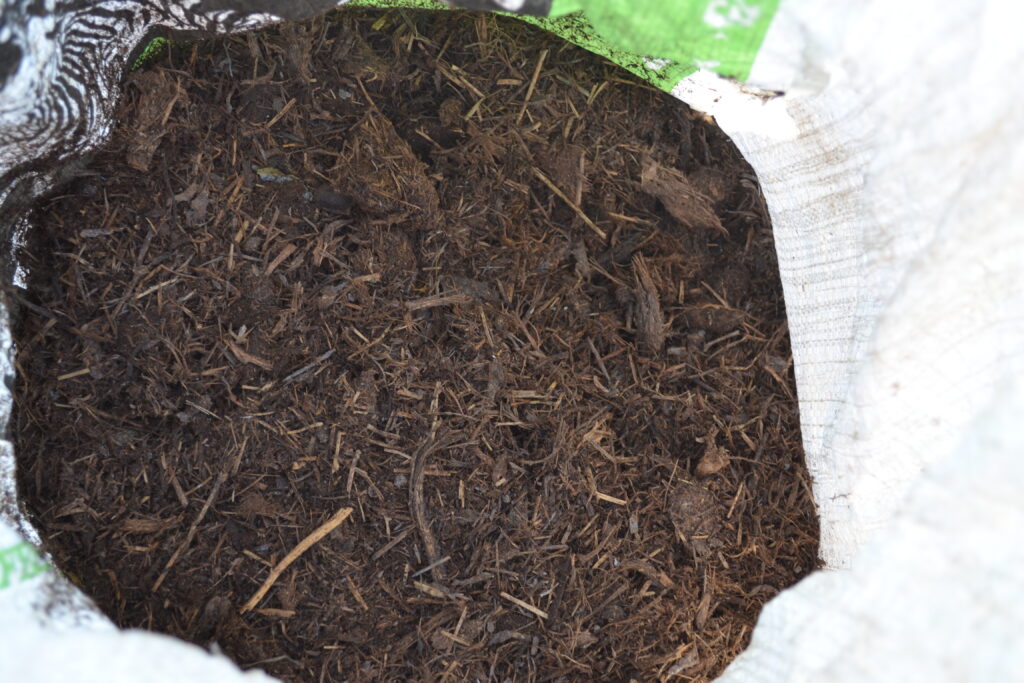
It’s easy to achieve nutrient-rich soil at home. To get started, all you need is a compost bin or pile and a few basic materials. Layer your compost materials, including waste you have as fruit and vegetable scraps, egg shells, nut shells, coffee grounds, tea bags, apple cores, and garden clippings. Use a balanced amount of “greens” (food scraps, grass clippings) and “browns” (leaves, straw, woody materials) to maintain a proper carbon-nitrogen ratio. Keep the compost moist and turn it occasionally to ensure proper decomposition. With a little patience and effort, you’ll soon have a rich and fertile soil amendment that will benefit your plants and the environment.
To learn more about our Elephant Dung Compost Project and what it takes to make it, watch our YouTube video:



 Comment
Comment

